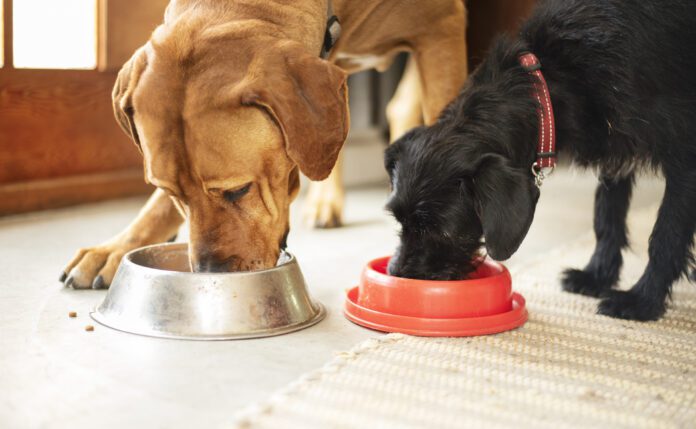It may seem like the time it takes for a dog to digest his food is short. After all, puppies need to poop almost as soon as they finish dinner, which naturally places “after eating” on the puppy bathroom schedule.
In reality, it’s not that fast. Gastrointestinal transit time—the veterinary term for how it takes for dogs to digest food—averages 24 hours. The time to digest food varies depending upon the dog’s age, size, and the fiber and fat contents of the diet.
Puppies poop right after eating because, when a meal is consumed, nerves in the stomach wall sense the stomach’s distension and communicate “full stomach” status to the nerves in the colon, which activate the large intestinal contraction. This is why taking a puppy for a potty walk shortly after eating is a good idea. Caution: Avoid anything more than an easy walk for about two hours after a meal. Heavy exercise right after eating can cause life-threatening bloat (gastric dilation-volvulus, or GDV). Bloat occurs when food, water, or air fills overfills the stomach, causing it to twist. When a dog exercises heavily, he pants and ingests air, which adds to the stomach’s contents and raises the risk of bloat.
How many times a day you should feed a dog depends upon the dog’s adult size, age, physical health, and behavioral health. In general, a healthy dog does well on two meals, although some are fine with one meal. Certain dogs need multiple meals per day:
- Young toy-breed puppies need food multiple times a day to avoid hypoglycemia (low blood sugar)
- Senior dogs are sometimes unable to eat larger meals
- Large and giant breeds are at an increased risk of bloat
- Diabetic dogs need meals associated with insulin injections
- Dogs with bilious vomiting syndrome (vomiting bile due to irritated stomach linings) need multiple meals to prevent the stomach from being empty for longer periods of time
- For dogs in training, multiple meals give you the chance to practice and reward with the dog’s meal
If you suspect any health problems, or you have a toy or giant breed, discuss these factors with your veterinarian.







what are considerations for once-a-day vs twice a day feeding schedules?